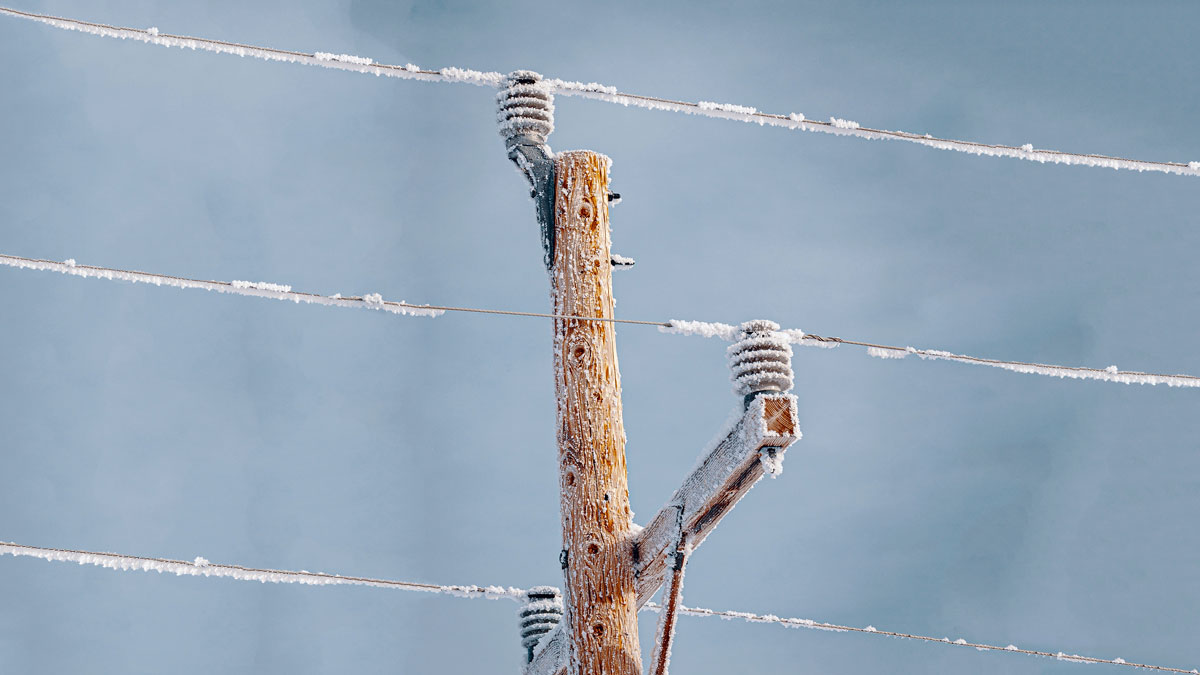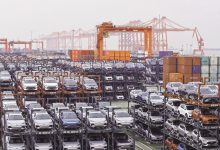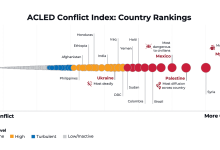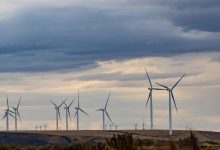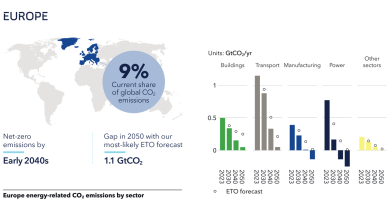European Countries Fighting Against Rising Energy Prices
Increase in gas prices leads to rising electricity and fuel prices. Faced with this post-Covid recovery phenomenon, European countries are organizing to limit the impact of rising prices on Europeans’ purchasing power.
European governments are trying to alleviate the burden on consumers and businesses through measures such as price capping and subsidies. Moreover, experts warn that Europe could face power outage this winter, due to low supply.
But this increase in gas prices in Europe is strictly related to that in the rest of the world and in Asia in particular. Given that European countries import raw materials almost for all their needs and that European gas production has disappeared in France and is about to disappear in the Netherlands, soon everything that will remain in the old continent space is gas production in Norway, a country that is not in the eurozone.
Therefore, half of European imports come from Russia, another part from Algeria and less from Libya. But one third of European imports is purchased from the global market. This last third includes liquefied natural gas that needs regasification to be transported through the European pipelines. The large European national companies previously purchased gas (especially from Algeria) under oil-indexed supply contracts. Due to competition, today this is no longer the case. Over the past few years, spot markets have developed in Europe – purchases for immediate delivery, as well as derivative markets, the main one being the Dutch TTF hub.
These markets have allowed a development of financial products, which allows energy players to buy or sell gas, but in a context of full instability, which has repercussions on the international and European market.
Record year of rising energy prices in Europe
In Europe, gas prices doubled four times in only 6 months, the increase being particularly high in some countries. Electricity bills have grown, in a year, by over 35% in Spain, while Italy has increased its gas tariffs by 30% and its electricity tariffs by 40% in mid-year. In Belgium, which is one of the countries with the highest energy prices in Europe, these increases become a real concern: 20% of Belgian households are already in energy poverty, a proportion that has reached a record 25% in Wallonia. France makes no exception from this inflation of energy prices, especially for gas: after an increase in tariffs by 57% as of January 1, 2021, there was a new increase in gas prices by 12.6%, as of October 1, 2021.
Situation in European countries and measures taken
Belgium
In early October 2021, the Belgian government decided to extend the social energy tariff for the poorest households until March 2022. This measure is accompanied by an ‘energy cheque’ of EUR 80, sent to one million families.
Poland
In turn, Poland budgeted a maximum amount of EUR 1.1bn for 2022 to help pensioners and numerous families (in particular) to cope with rising prices. According to statistics, one in five households will be eligible for this aid.
Latvia
Starting with November 2021 and until (at least) the end of 2022, in Latvia around 150,000 households (those with low income, with one member with disabilities, numerous families) will receive between EUR 15 and EUR 20 per month, to pay their electricity or gas bills.
Estonia
From September 2021 until March 2022, the Estonian government mobilizes around EUR 75 million to reduce the electricity bill for all consumers and EUR 20 million to help around 72,000 poor families.
Lithuania
For its part, the Lithuanian Parliament has to adopt several government proposals, especially spreading throughout five years the increase in gas prices and extending the heating aid for approximately 110,000 poor families.
France
France has decided to freeze gas prices until the end of 2022, while from February (when the following increase in electricity prices takes place) the increase will be limited to 4% through a reduction of taxes. This means a deficit of EUR 4 billion for public finance, which the Executive plans to finance by withdrawing dividends paid by EDF (Électricité de France).
Germany
From January 1, 2022, the German government will reduce to almost half the tax on renewable energy, which concerns all consumers. The decrease in bills will be proportionate to consumption but could be offset by an increase in other components of the electricity price, which is already one of the highest in Europe.
Spain
In full diplomatic crisis with Morocco, Algeria makes the closure of Maghreb-Europe gas pipeline official. Its exports to Spain will now pass through Medgaz pipeline, which directly links the two countries. A decision that endangers the continuity of gas supply in Spain, as well as its electricity production. It is the end of 25 years of good and loyal services for Maghreb-Europe gas pipeline. Its operation contract, which ended on October 31, 2021, will not be renewed, the Algerian officials have announced.
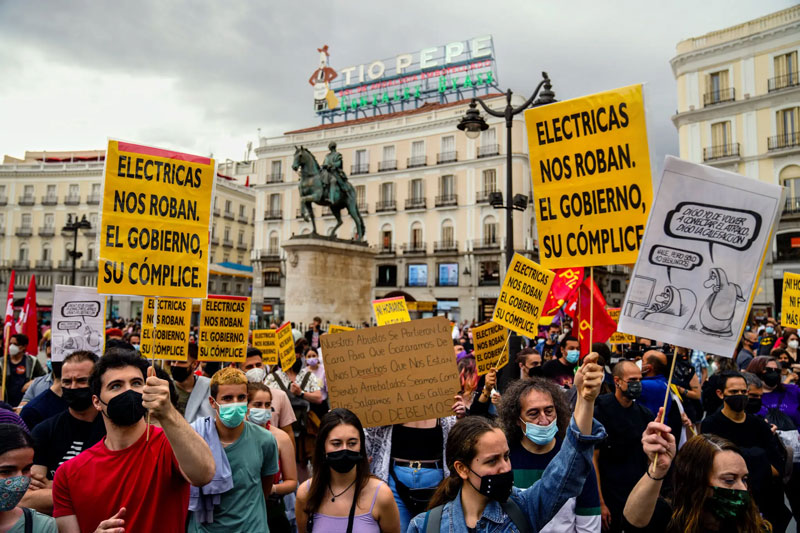
As far as measures are concerned, Spain acted in July 2021 with a temporary reduction of VAT, from 21% to 10% for electricity. But this decrease has been already partially absorbed by the rising prices and the Government has presented a second round of measures in mid-September 2021, including a temporary reduction of the special electricity tax and a limit of windfall gains achieved by electricity companies.
Czech Republic
In turn, the Czech Government has eliminated VAT for electricity and gas for November and December 2021 and later approved a draft law to cancel this tax in 2022 as well. But it requires the European Union’s approval.
Italy
Italy in September 2021 announced a tranche of EUR 3 billion to try to mitigate the impact of this price increase on the purchasing power of Italians. This amount will make it possible that around 2.6 million persons who already benefit from social aid will not suffer from rising gas prices.

UK
In the UK the Government has announced a fund of GBP 500 million to help the most vulnerable persons pay their energy bills, especially for heating, and also to cover their food and clothing expenses.
Romania
Given the situation determined by rising prices in the electricity and natural gas markets at international level, as well as the effects caused by these increases for the population, the government has prepared an emergency ordinance on the regulation of fiscal and budgetary measures and setting the compensation scheme for electricity and natural gas consumption for the cold season 2021-2022, so that electricity and natural gas prices paid by the household consumers do not aggravate the level of energy poverty. According to EUROSTAT data, the risk of poverty and social exclusion in Romania in 2020 affected 30.4% of the population.
Households’ beneficiary of the compensation scheme related to electricity consumption are individuals whose electricity consumption during November 1, 2021 – March 31, 2022, is between 150 kWh – 1,000 kWh inclusively.
Households’ beneficiary of the compensation scheme related to gas consumption are individuals whose gas consumption during November 1, 2021 – March 31, 2022, is between 80 m3 – 960 m3 inclusively.
Gazprom’s influence
In Europe, one third of gas comes from Russia, so the old continent is facing an increase in gas prices, amid a substantial demand due to the economic recovery with the improvement of the epidemic situation related to Covid-19.
Within an energy meeting by videoconference chaired by Vladimir Putin, Gazprom CEO Alexei Miller announced that the group would complete the filling of Russian gas storage facilities by November 8, 2021.
“After you complete the pumping of gas into Russia’s underground storage facilities by or on November 8, I would like you to start consistent and planned work on increasing the amount of gas in your underground depots in Europe”, said President Putin, specifying that it was about Austria and Germany in particular. “This will make it possible to fulfil our contractual commitments in a reliable, stable and consistent manner and to supply our European partners with gas in the autumn and winter”, he added.
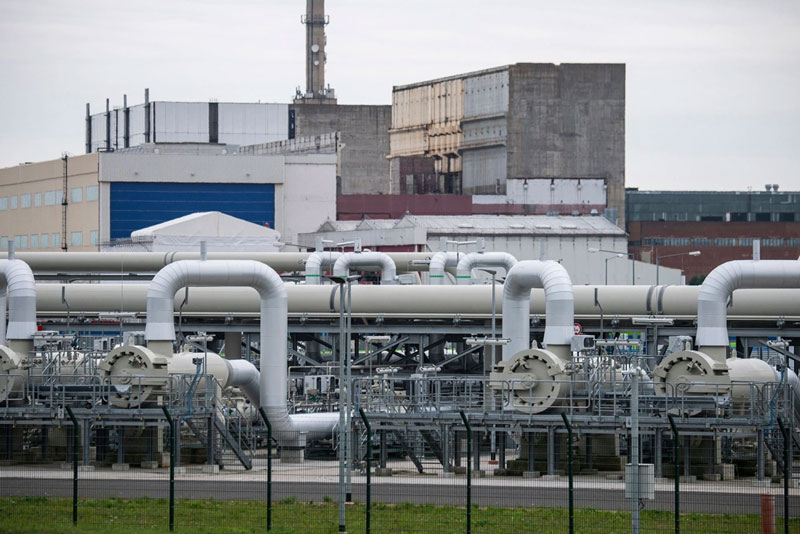
Following this announcement, the European benchmark at the Dutch TTF fell by 21%, which meant less than EUR 70/MWh. The same was true for British gas, scheduled for delivery in the following month. Its price witnessed a similar decline during the week in which Gazprom’s announcement was made, to a price of 177.00 pence per term (a unit of heat energy). According to Moscow, the EU has favoured in recent years acquisitions from a market subject to price fluctuations, preferring not to sign long-term contracts with Gazprom. Therefore, Russia claims it wants to deliver more gas, but it also wants to return to the practice of multi-annual agreements.
It should be noted that at the end of October 2021 the gas storage facilities in Germany were filled at a rate of 70%, while those in the European Union had a filling rate of 77%.
Therefore, Europe has started the cold season with the lowest gas inventories in the last decade, both due to an extended winter in 2020 and due to insufficient filling of underground gas storage facilities, despite the post-pandemic recovery of the economic activity. For meteorological reasons, there is also a small contribution to renewable energy, such as wind energy.
Gas prices rose again in Europe in November 2021 after the German Federal Network Agency (Bundesnetzagentur, BNetzA) announced the suspension of the approval process for Nord Stream 2, the controversial pipeline between Russia and Germany under the Baltic Sea, citing a legal hurdle.


